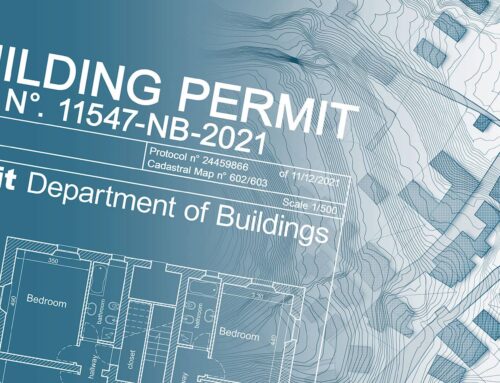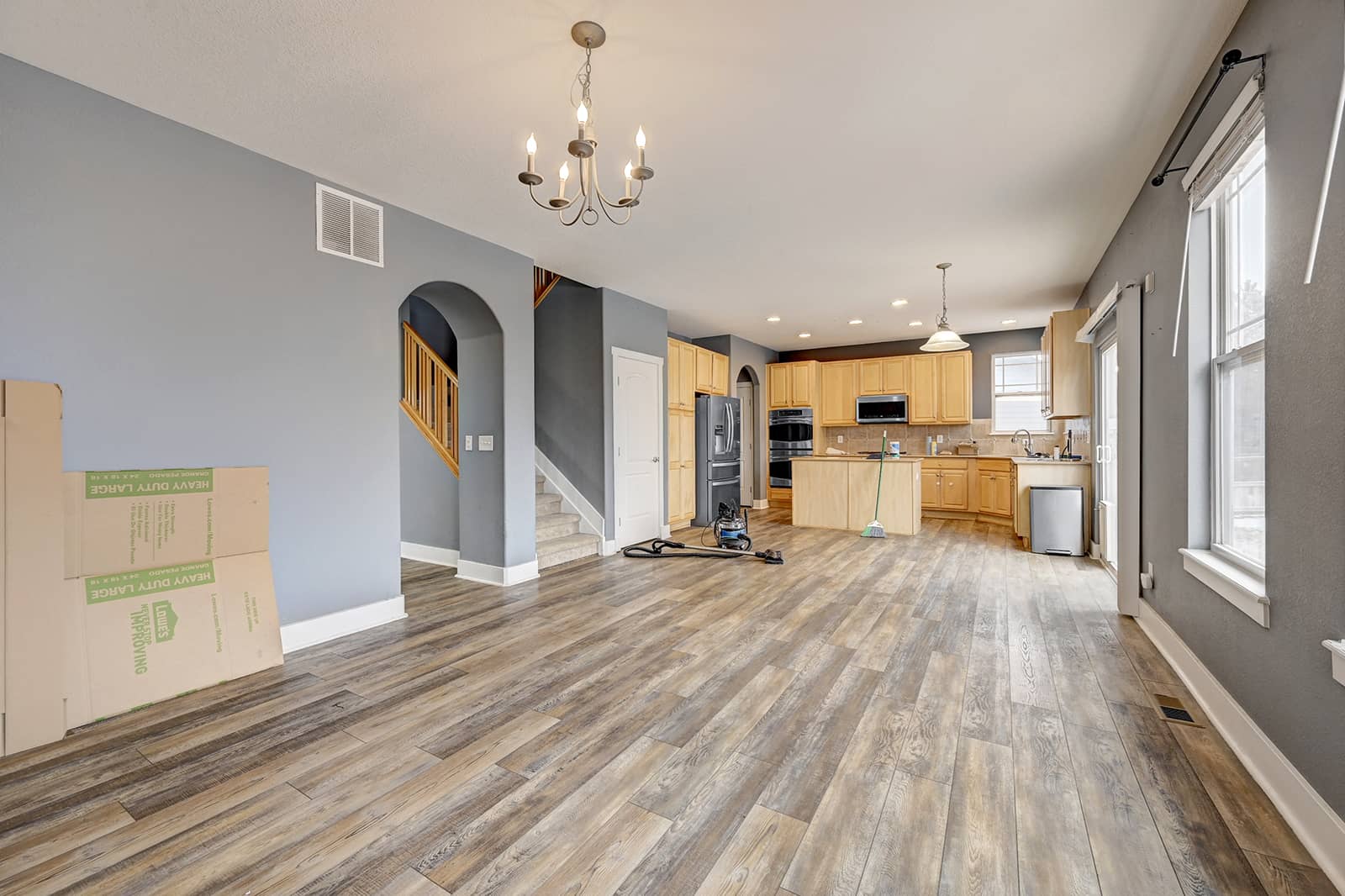
Navigating the Denver Metro Housing Bubble: Are We In One?
Current market indicators suggest Denver home prices are experiencing market stabilization rather than a housing bubble. Key data points include steady 3% year-over-year price growth, normalized price-to-income ratios, and strategic seller adjustments through concessions and price reductions. With 60% of sellers offering concessions and median days on market at 29, the market shows signs of rebalancing rather than speculative inflation. Local economic fundamentals and employment trends reveal deeper insights into Denver's housing market stability.
Key Takeaways
- Current 3% price growth and 98.5% seller-to-asking ratio indicate market normalization rather than a bubble’s speculative inflation.
- Widespread seller concessions (60%) and price reductions (50%) demonstrate a correcting market, not a bubble’s unsustainable appreciation.
- Rising inventory levels (40% year-over-year) suggest healthy market adjustment versus bubble-like scarcity and bidding wars.
- Strong local economic factors, including job growth and corporate relocations, support sustainable property values.
- Price-to-income ratios show market normalization, contrasting with previous bubble periods’ severe affordability disconnects.
Market Indicators vs. Traditional Bubble Signs
When comparing Denver’s current housing market indicators to traditional bubble signs, several key distinctions emerge. Unlike typical bubble scenarios, Denver’s market shows controlled price adjustments rather than rapid inflation, with median prices increasing only marginally year-over-year at 3%. Observing current market trends, it is evident that various factors, such as inventory levels and mortgage rates, are influencing market stability and the overall balance between supply and demand.
Traditional bubbles exhibit widespread speculative buying and minimal seller concessions, yet Denver’s current market reveals 60% of sellers offering concessions and 50% implementing price reductions. The measured 29-day median time on market and steady inventory growth of 40% year-over-year further suggest a market correction rather than a bubble, indicating a shift toward balanced conditions between buyers and sellers. Additionally, high interest rates are affecting buyer demand, contributing to a backlog of listings, and influencing the stabilization of home prices as potential buyers hesitate due to these elevated costs.
Price Trends and Historical Comparisons
While Denver’s housing prices have steadily appreciated over the past decade, the current market shows notable differences from historical patterns, particularly in terms of home price growth. Recent data reveals a median price of $580,000, marking a modest 3% year-over-year increase compared to previous years’ double-digit growth. Historical bubble periods typically showed rapid price escalation followed by sharp crashes, whereas current trends indicate a more controlled appreciation rate.
Analysis of price-to-income ratios and market corrections since 2000 suggests today’s market represents a normalization rather than a bubble. The 50% rate of price reductions and 60% seller concessions reflect a market seeking balance rather than speculation-driven inflation. Despite the decline in overall home prices, prices remain elevated on a price-per-square-foot basis, indicating a disparity between listing prices and market expectations.
Interest Rate Impact on Housing Demand
The dramatic shift in interest rates from historic lows to over 7% has fundamentally reshaped Denver’s housing demand arena, with high mortgage rates significantly increasing the overall cost of buying a home. Monthly payments have increased substantially, forcing many potential buyers to postpone purchases or seek more affordable options.
Recent data shows this impact clearly: 50% of Denver Metro homes now require price reductions, and 60% of sellers offer concessions to attract buyers. The median 29-day listing period reflects slower absorption rates compared to the frenzied pandemic market.
First-time homebuyers face particular challenges, with many priced out of neighborhoods they could have afforded when rates were lower. This rate environment continues to suppress natural housing demand in spite of strong local employment. Additionally, low mortgage rates during the pandemic drove a surge in home prices as buyers rushed to secure favorable terms before potential increases.
Seller Concessions and Market Shifts
Dramatic market shifts have compelled Denver Metro sellers to adopt concessions at unprecedented levels, with recent data showing that 55% of closed transactions, including seller assistance, averaging $8,760. The trend reflects a significant market recalibration, as sellers now receive 98.5% of asking price compared to 106.4% during the pandemic peak, giving buyers more negotiating power.
These concessions, ranging from rate buy-downs to closing cost coverage, indicate a market equalizing rather than collapsing. With approximately half of listed homes experiencing price reductions, sellers are strategically adjusting to maintain competitiveness while preserving core property values, suggesting a market correction rather than bubble conditions. Well-staged homes can still attract multiple offers, highlighting the importance of effective marketing and pricing strategies.
Supply and Demand Analysis
Recent data from the Denver Metro Association of Realtors reveals a complex supply-demand balance, with inventory levels reaching 8,972 homes in November 2024 – representing a 40% year-over-year increase but a 17% month-over-month decrease.
This market dynamic reflects both seasonal patterns and shifting buyer behavior, with stagnating prices indicating that buyers are hesitant to enter the market due to expectations of further price reductions. New listings increased 1% compared to November 2023, while high-end properties ($1-2 million) experienced a 30% surge in closings. Despite higher inventory levels compared to 2023, the market maintains stability through price adjustments and seller concessions, with 50% of homes requiring price reductions to secure buyers. However, any increase in buyer demand or a decrease in inventory could create upward pressure on home prices.
Local Economic Factors Shaping the Market
In the current Denver housing market, buyers and sellers must be strategic in their approach. Buyers should take advantage of the increased inventory levels and lower buyer demand to negotiate better prices. Sellers, on the other hand, must be realistic about their pricing and be prepared to make concessions to attract buyers. With the intense bidding wars of the past few years subsiding, buyers now have more time to consider their options and make informed decisions. Additionally, the rise of new listings and new construction in the Denver metro area provides buyers with a wider range of choices, from single-family homes in Colorado Springs to condos in the Mile High City.
Buyer and Seller Strategies
Denver’s economic importance plays a pivotal role in sustaining its housing market stability, with key indicators from the Federal Reserve Bank showing continued job growth and population expansion. The metro area’s diverse employment sectors, particularly in technology and healthcare, contribute to steady wage growth and housing demand.
Local economic data reveals a 2.3% increase in median home prices to $583,000, reflecting the region’s economic resilience. In spite of higher interest rates affecting affordability, the market maintains a 98.5% seller-to-asking-price ratio. Employment statistics and corporate relocations to the area further strengthen the foundation for sustained property values, though affordability challenges persist for first-time buyers. Additionally, fluctuations in home value indicate broader economic issues impacting market stability and affordability.
Investment Opportunities and Risk Assessment
With market conditions showing increased inventory and price adjustments, strategic investment opportunities have emerged across the Denver metro area for both seasoned and novice investors, with additional appreciation aligning with historical trends when adjusted for inflation. Key indicators suggest potential value in properties requiring renovations, particularly in neighborhoods experiencing infrastructure improvements and demographic shifts.
Risk assessment reveals moderate concerns, with 50% of homes facing price reductions and sellers offering concessions averaging $8,760. Yet, the market’s underlying stability, evidenced by consistent sales-to-list price ratios of 98.5%, indicates calculated investment possibilities. Investors should focus on properties in areas with strong rental demand and proven appreciation patterns. Additionally, the current trends in Denver home values, including median closed prices and year-over-year changes, provide insights into future price fluctuations and market corrections.
Expert Predictions for Denver’s Housing Future
Leading economists and real estate analysts project a measured stabilization of Denver’s housing market through 2025, with forecasts indicating a minor -0.1% adjustment in late 2024 followed by modest gains of 0.2% by late 2025, reflecting current Denver housing market trends.
Market indicators suggest a shift toward balance rather than a bubble burst, with 50% of homes requiring price reductions and 60% offering buyer concessions. The data points to a self-correcting market mechanism rather than systemic instability. Experts emphasize that Denver’s strong job market, population growth, and limited land availability will continue supporting property values, in spite of current interest rate pressures and affordability challenges. Insights from the DMAR Market Trends Committee, particularly from Amanda Snitker, highlight the market’s transition to stability marked by factors like high interest rates and changing buyer demand.
Navigating The Denver Metro Housing Market
Navigating the Denver metro housing market can be challenging, especially for those who are new to the area. With population growth slowed significantly in recent years, the market is experiencing a correction, with prices adjusting to more sustainable levels. The Federal Reserve Bank's decision to cut interest rates is expected to have a positive impact on the market, stimulating new demand and encouraging potential buyers to enter the market. However, with higher mortgage rates still a reality, buyers must be cautious and carefully consider their financing terms before making a purchase. The Denver area, including cities like Fort Collins and Grand Junction, offers a range of options for buyers, from affordable starter homes to luxury properties.
Conclusion
Denver's housing market exhibits correction indicators rather than bubble characteristics. Data reveals natural market adjustments through increased inventory, extended listing times, and seller concessions while maintaining moderate price appreciation. Insights into the Denver housing market highlight the importance of market stabilization influenced by factors such as high interest rates, lower buyer demand, and increased inventory levels. Economic fundamentals, population growth, and employment stability suggest a sustainable recalibration rather than an impending crash. Investors and homebuyers should approach the market strategically, focusing on long-term value potential amid evolving conditions. Denver's housing market dynamics, including price fluctuations and increased housing supply, align with broader economic uncertainties and inflation, presenting challenges for both buyers and sellers.










